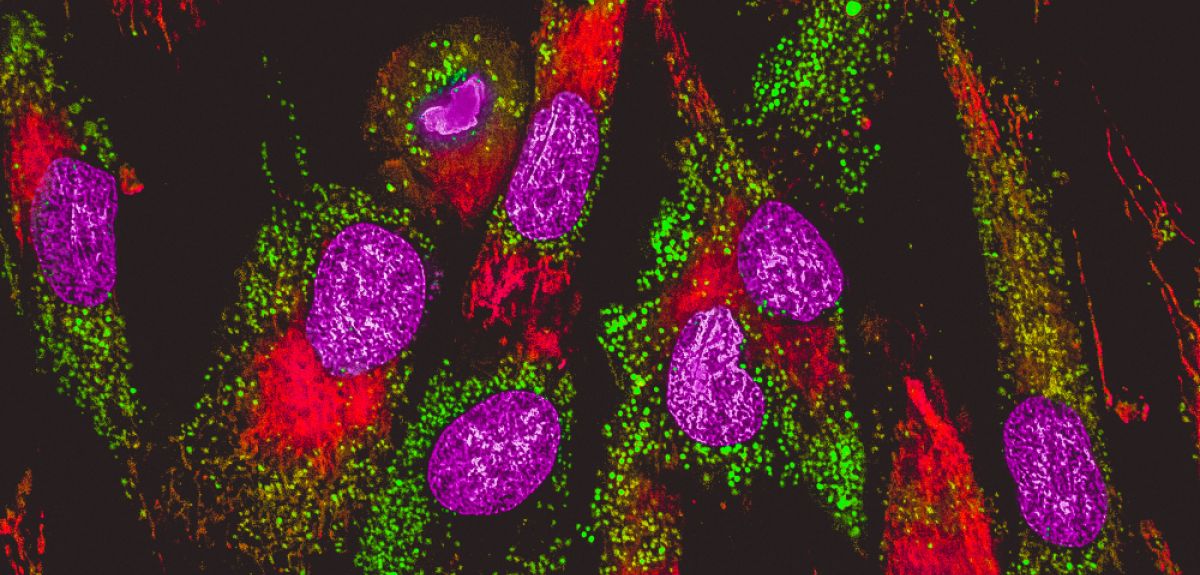
Trial investigating potential treatment for fatigue relief in people with long COVID reports results
Researchers from the University of Oxford have reported findings from a Phase 2 clinical trial investigating the efficacy of an investigational treatment against long COVID fatigue.
The study (reported in Lancet eClinical Medicine) found participants given the treatment, developed by US pharmaceutical company Axcella Therapeutics, reported feeling less fatigued than those given a placebo.
This is one of the first randomized double-blind placebo controlled trials of a potential long COVID treatment – AXA1125. Randomised control trials are considered to be gold standard for testing potential treatments for an illness.
People living with long COVID in the trial who received AXA1125 had a significant improvement in fatigue compared to those who received a placebo (material matched in appearance and taste to the investigational treatment). The study was double-blind, that is, neither the patients nor the researchers working with the patients knew which patients had the treatment and which patients had a placebo.
AXA1125 was tested in long COVID fatigue as previous data from Axcella showed effects on cellular energetics and inflammation. Emerging data on long COVID suggests that the virus targets the mitochondrial, which are essential to normal energy generation and control of inflammation. AXA1125 may improve energy generation and reduce the amount of inflammation in the body.
Of the 41 patients taking part in this study, half had the investigational treatment (an orange-flavoured powder dissolved in water) twice daily for four weeks, while the other half had a placebo. On average, patients had symptoms of fatigue for about 18 months prior to entering the study. All the patients who started the study completed it, and none reported serious adverse effects of either the treatment or the placebo.
The research team also tracked mitochondrial health in the patients’ muscles before and after they took the medication, using state-of-the-art magnetic resonance spectroscopy scans of the patients’ calf muscles as they bent and straightened their leg against the mild resistance from an exercise band.
The scans showed no overall difference between the patients who took the treatment versus the placebo. Although there was no overall difference in mitochondrial health between patients who received the treatment versus those who were administered a placebo, those in the treatment arm did report significantly improved fatigue levels. Those who reported an improvement in fatigue also had improved mitochondrial health and walked further compared to those without.
Principal Investigator, Associate Professor Betty Raman from the Radcliffe Department of Medicine at Oxford University, said:
‘The reduction in patients’ own reports of fatigue is really positive news, and we hope that further work will help us understand the underlying processes behind this improvement too.
‘There is still some way to go in treating all patients with long COVID – our results focus specifically on fatigue, rather than the breathlessness and cardiovascular issues that other long COVID patients have reported.
‘We also selected patients who had clear signs of mitochondrial function being disturbed – effects of the medication on other symptoms remains to be evaluated in future studies.’
The research team also hope that future studies determine if the treatment is effective for an even larger group of long COVID patients.
Study author Margaret Koziel MD, Axcella Chief Medical Officer, said:
‘We are encouraged by these results, and hope that a treatment for people who suffer from long COVID fatigue may be in sight.
‘We are energized to advance AXA1125 further towards being made available to the millions of patients currently without treatment options. Our approach allows us to target several pathways that are disrupted in long COVID, and our previous experience with AXA1125 suggests that is both easy to take and well tolerated in clinical studies.’
By the end of last year, over 500 million cases of COVID-19 were reported across the world. Of these, up to 10% are thought to be suffering from Long COVID. Fatigue is one of the main symptoms experienced by patients and there is as yet no approved treatment for the condition.
The study was funded by Axcella Therapeutics.
 Latest results from 20+ year Oxford study reveals ongoing impacts of global crises on young people
Latest results from 20+ year Oxford study reveals ongoing impacts of global crises on young people
 New research reveals psychological ‘booster shots’ can strengthen resistance to misinformation
New research reveals psychological ‘booster shots’ can strengthen resistance to misinformation
 Oxford researcher reveals hidden Alfred Tennyson text using innovative imaging techniques
Oxford researcher reveals hidden Alfred Tennyson text using innovative imaging techniques
 Expert Comment: What is the 'digital gender gap'?
Expert Comment: What is the 'digital gender gap'?
 More than 70 local school pupils will attend Oxford for sport and education as community initiative doubles in size
More than 70 local school pupils will attend Oxford for sport and education as community initiative doubles in size